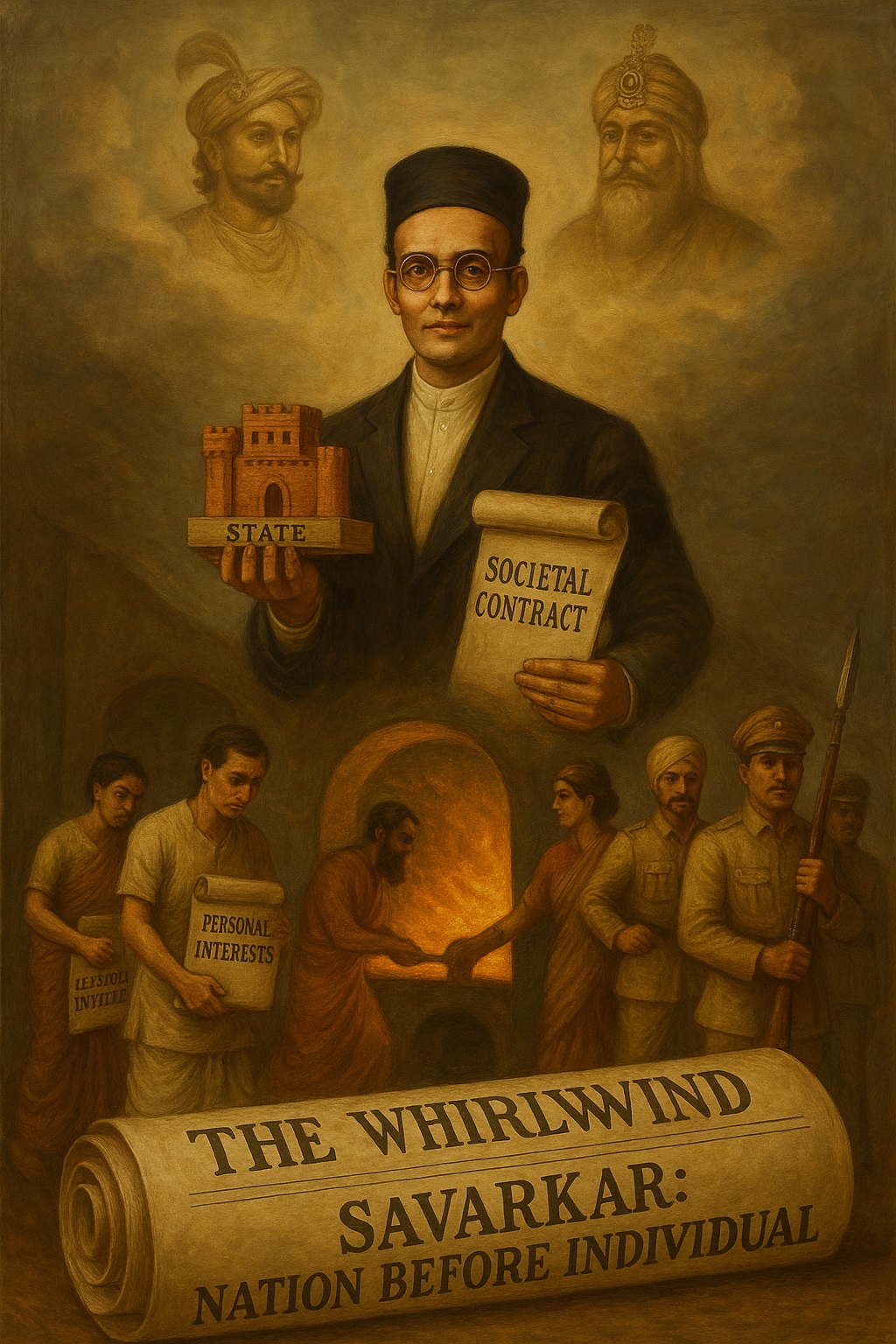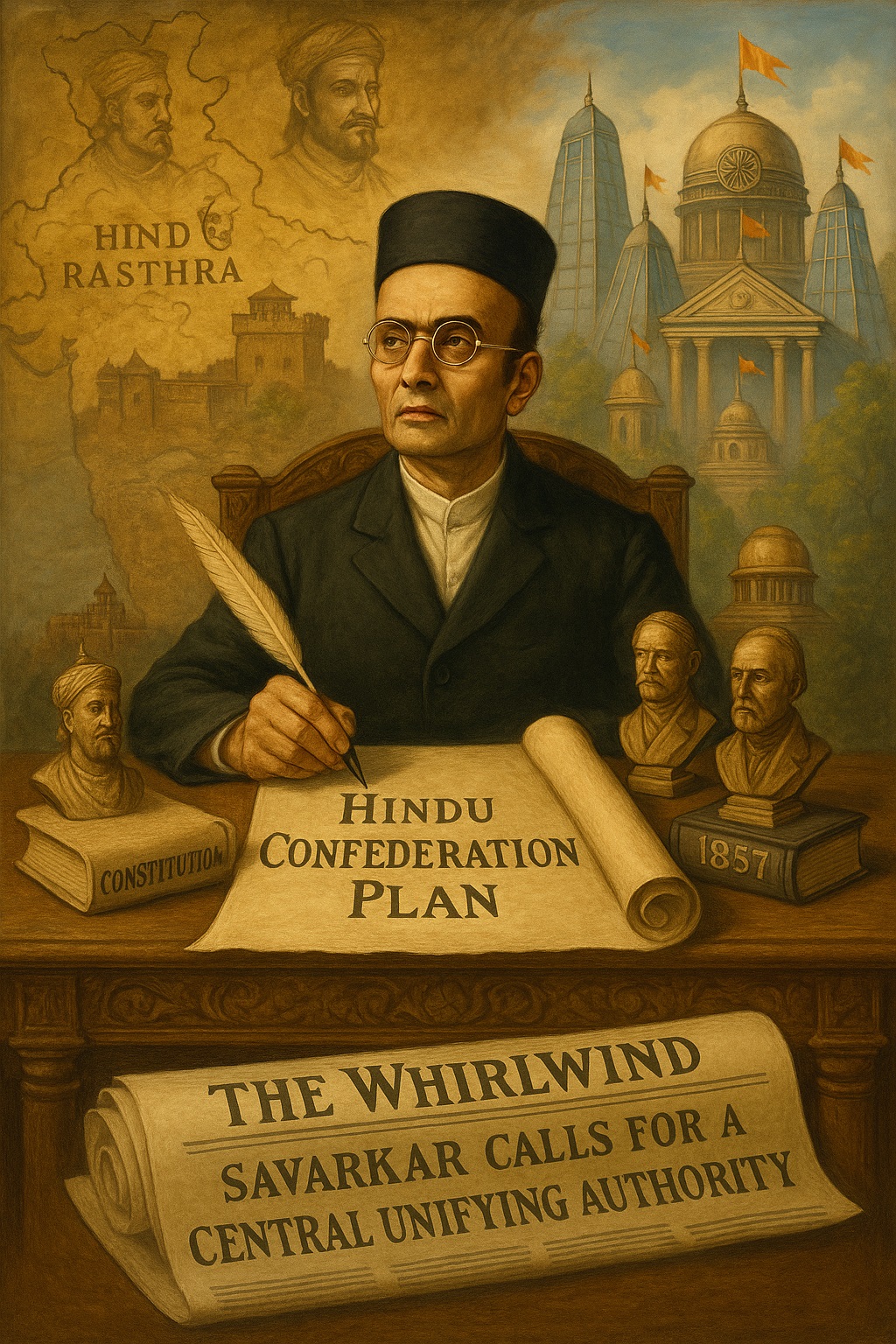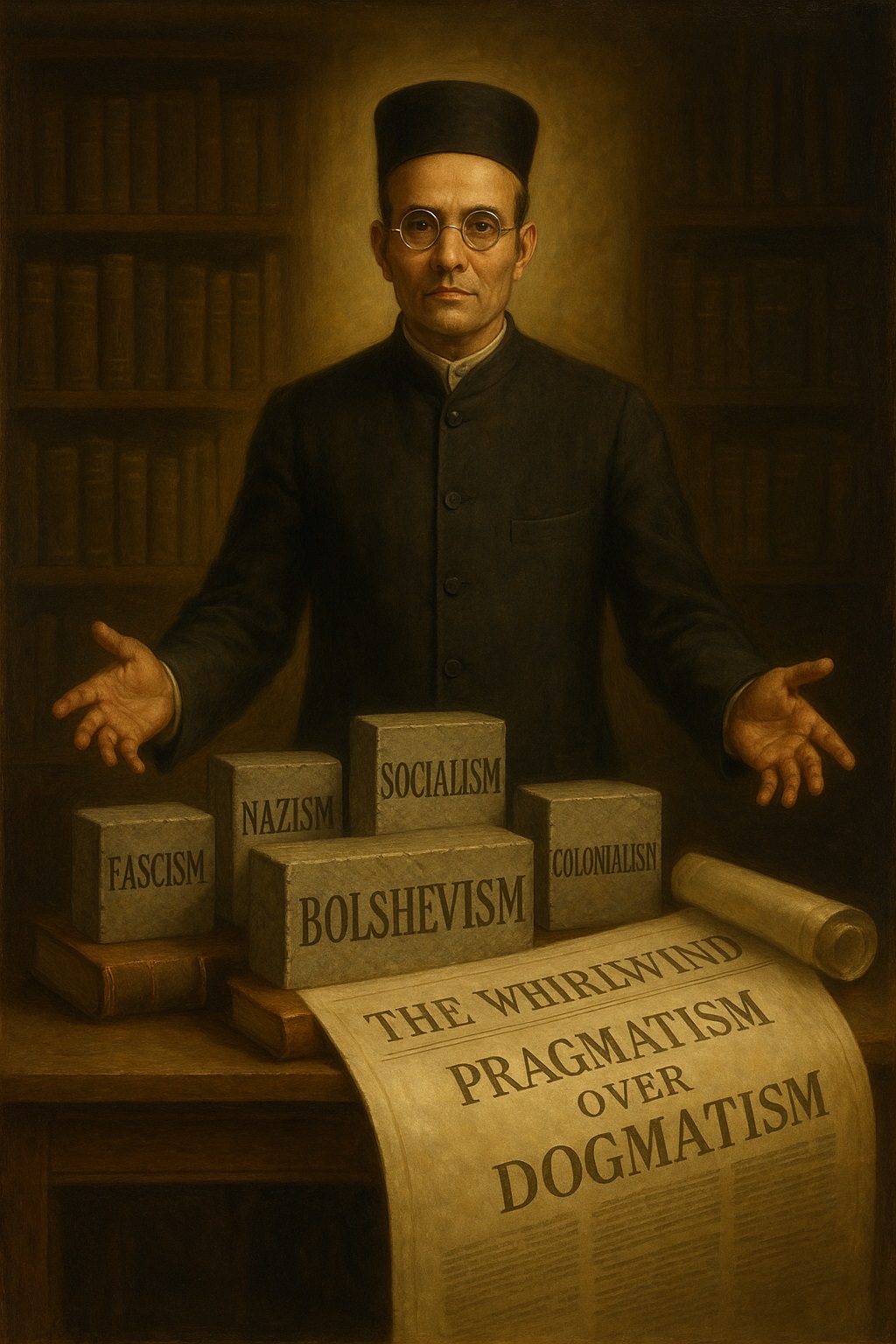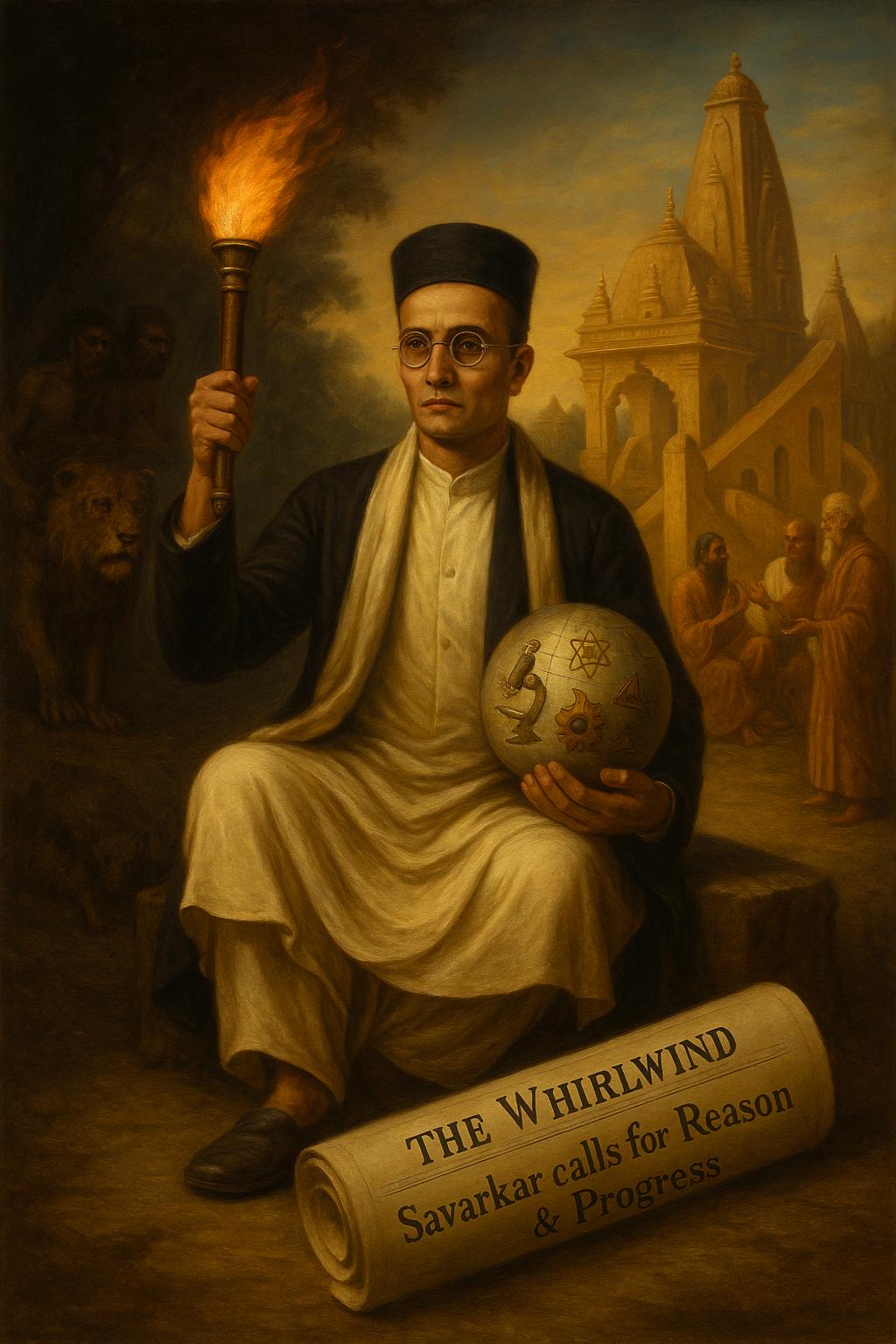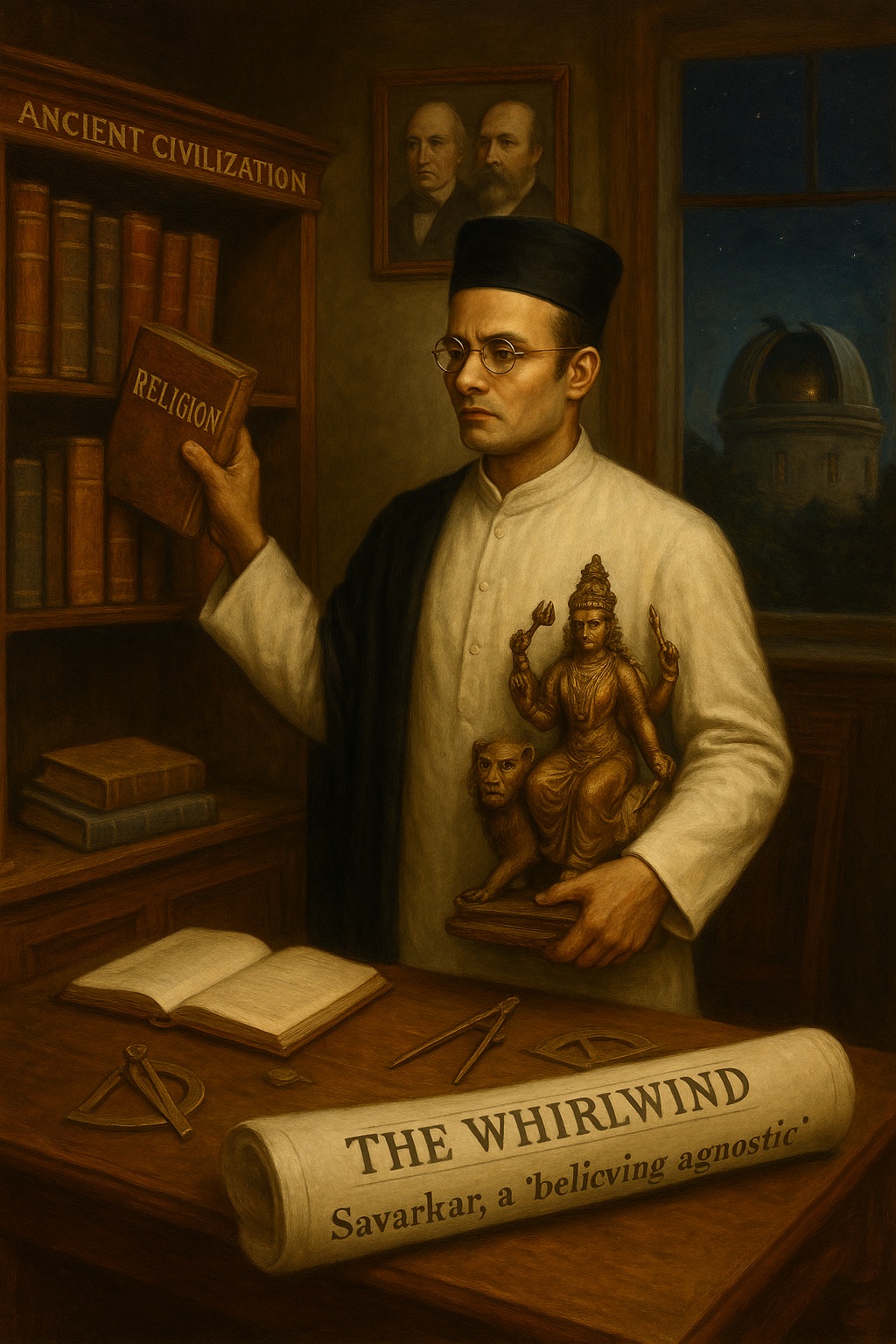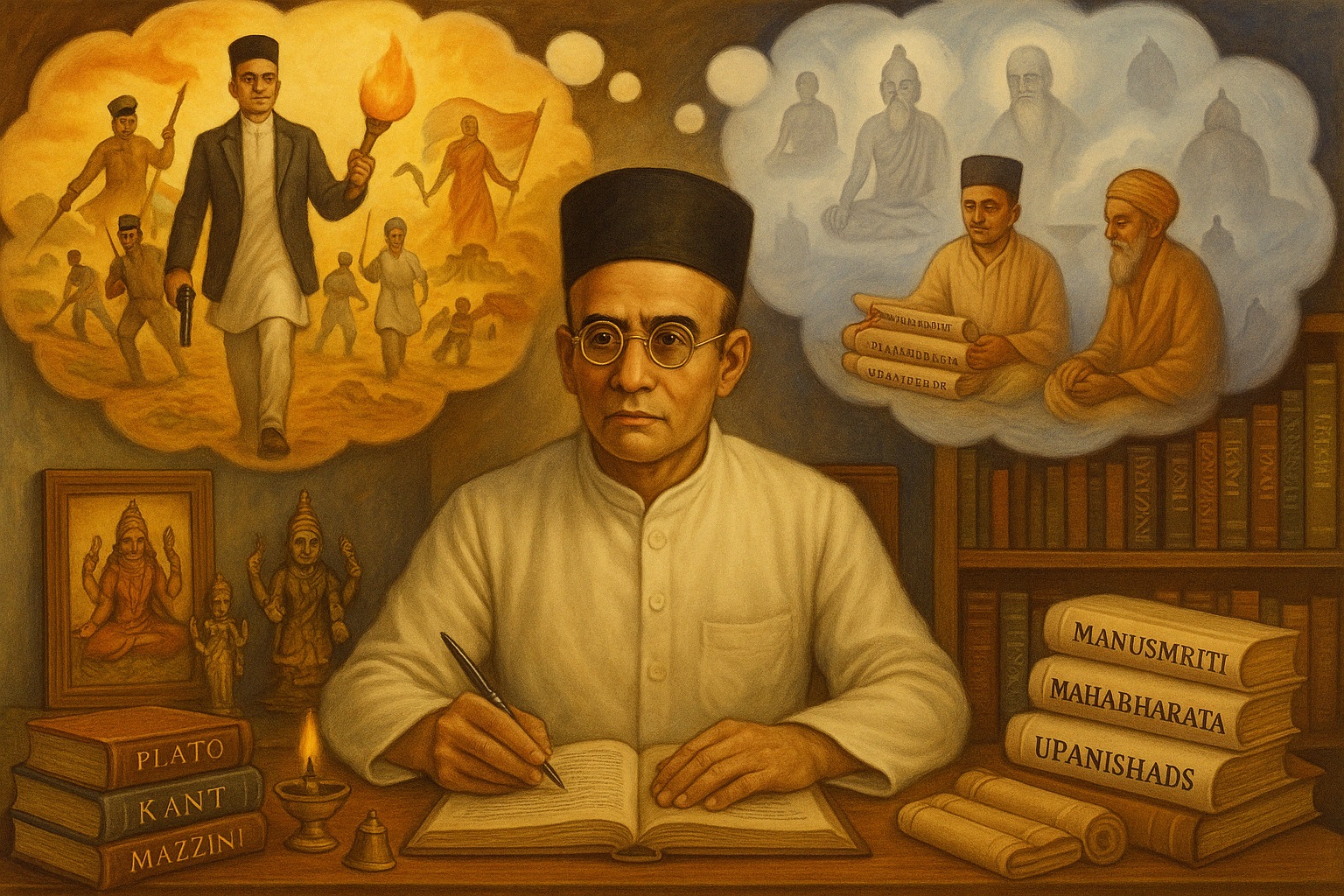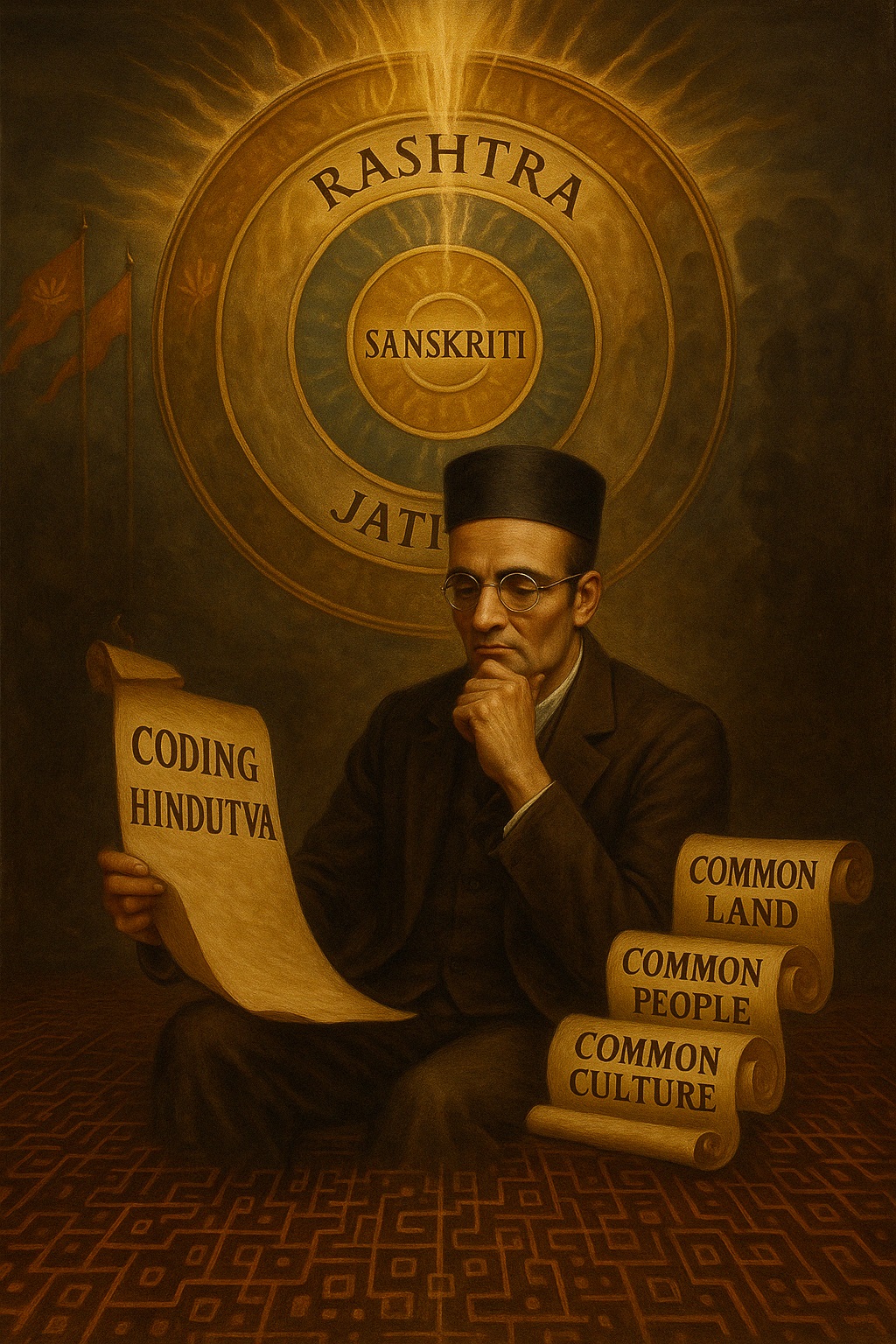All Blogs
Discover
The Whirlwind’s Archive
This section contains the complete archive of The Whirlwind is a blog dedicated to the life, thought, and influence of Vinayak Damodar Savarkar. Each entry explores aspects of his political action, philosophical thinking, social reform efforts, historical interpretations, and cultural legacy. The blog aims to offer critical insights into Savarkar’s role in shaping modern Indian political and ideological discourse.

-
The Position of the Individual in Relation to the Community and the Role of the State: Savarkar’s Vision
Read more: The Position of the Individual in Relation to the Community and the Role of the State: Savarkar’s VisionPolitical Dimension of Hindutva, Part 5 In his political thought, Vinayak Damodar Savarkar presents a vision that is deeply entwined with the idea of collective identity and the supremacy of the nation. His ideas reflect the notion that individual interests must be subordinated to the common good, especially in the context of a nation striving…
-
Savarkar’s Vision for Governance in a Hindu Rashtra
Read more: Savarkar’s Vision for Governance in a Hindu RashtraPolitical Dimension of Hindutva, Part 4 When envisioning the future of Hindu Rashtra, Vinayak Damodar Savarkar did not propose a rigid, fixed model of governance. Instead, his ideas evolved within the historical and political context of his time. Rather than outlining a single, comprehensive framework, Savarkar explored various possibilities, ranging from a constitutional monarchy in…
-
Savarkar and the Rejection of ‘Isms’
Read more: Savarkar and the Rejection of ‘Isms’Political Dimension of Hindutva, Part 3 One of the most defining aspects of Vinayak Damodar Savarkar’s political and social thought is his categorical rejection of rigid, doctrinal frameworks – whether political or religious (Savarkar 1941:50ff; 1999:52). He distances himself from any ideology or movement that is characterized by the suffix “isms”, believing that such rigid…
-
The Universal Dimension of Politics – Savarkar’s Concept of “Responsive Cooperation”
Read more: The Universal Dimension of Politics – Savarkar’s Concept of “Responsive Cooperation”Political Dimension of Hindutva, Part 2 Vinayak Damodar Savarkar had a political vision that extended far beyond the borders of India. His understanding of politics was not limited to governance within a nation-state but encompassed a broader, global perspective. Central to his political philosophy was the idea of responsive cooperation, a pragmatic approach that balanced…
-
Savarkar’s Agnosticism – Religion as a Political Strategy
Read more: Savarkar’s Agnosticism – Religion as a Political StrategySavarkar’s Philosophy & Worldview, Part 4; Savarkar’s Agnosticism (1/4) Vinayak Damodar Savarkar remains one of the most complex figures in Indian history. Often remembered for his nationalist ideology, his views on religion were equally nuanced and thought-provoking. Neither a conventional religious man nor a staunch atheist, Savarkar’s approach to religion was one of rational scrutiny.…
-
The Clash of Two Different Worldviews: Savarkar’s Perspective
Read more: The Clash of Two Different Worldviews: Savarkar’s PerspectiveSavarkar’s Philosophy & Worldview, Part 3 Vinayak Damodar Savarkar was a thinker who saw the world through the lens of a fundamental philosophical conflict: the opposition between the negation and affirmation of life. This divide, which he explored deeply, was not just an intellectual exercise for him—it shaped his understanding of Indian and Western philosophical…
-
An Introduction to Savarkar’s Economic Thought
Read more: An Introduction to Savarkar’s Economic ThoughtEconomic Dimension of Hindutva, Part 1 The Economic Impact of British Colonial Rule on India: A Historical Perspective The nearly two centuries of British colonial rule in India left an indelible mark on the country’s economic, social, and political fabric. Beyond the visible changes in governance and administration, British rule profoundly reshaped India’s economic structures,…

